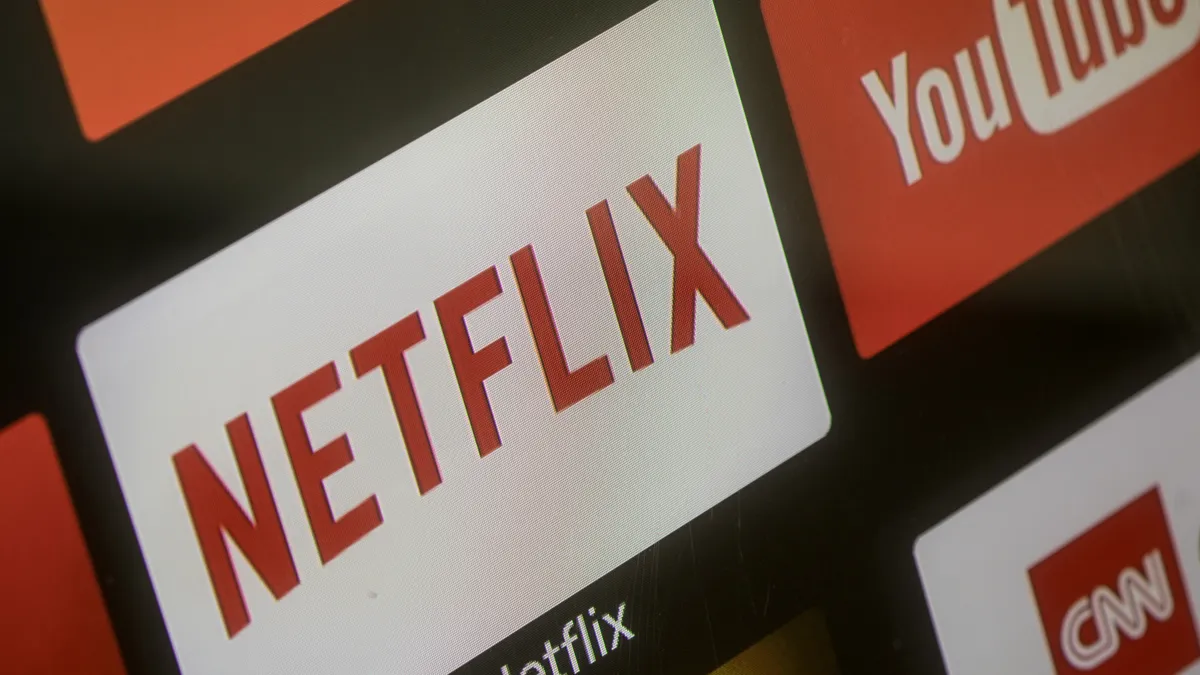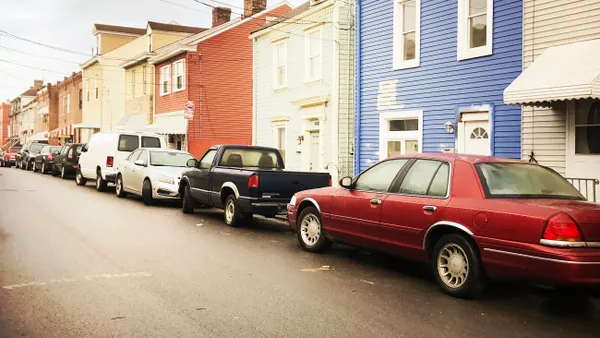Dive Brief:
- Cities across the country are suing streaming services like Netflix, Hulu and Disney+, seeking a share of the revenue from those companies to make up for lost revenue from cable franchise fees.
- Many states and cities collect franchise fees and other revenue from traditional cable companies in exchange for letting them use municipal infrastructure to deliver service. However, as consumer preferences have shifted away from traditional cable in favor of streaming services or internet TV, those revenues are declining. It's been estimated that cities could be missing out on tens of millions dollars annually as a result, according to The Hollywood Reporter.
- Cities that have recently filed lawsuits against streaming companies include Fort Scott, Kansas; Kenner, Louisiana; Longport and Irvington, New Jersey; and Dallas, Frisco and Plano, Texas. Several municipalities in Missouri have also filed a suit that resulted in what could be a "first of its kind" ruling by a St. Louis county circuit court judge, rejecting attempts by the streaming services to toss the case earlier this year.
Dive Insight:
The root of the lawsuits is a conflict between old tax and telecommunication laws and modern entertainment preferences, said Angelina Panettieri, the legislative director of information technology and communications for the National League of Cities (NLC).
Municipalities originally imposed franchise fees on cable companies of up to 5% of local gross receipts in exchange for the use of infrastructure and public right-of-ways. Many municipalities used those funds to support technology improvements or built in requirements that cable companies expand their offerings to underserved neighborhoods or provide monetary and in-kind support for public access programming.
However, Panettieri said, those fees don’t work in an era where, according to Deloitte, only 67% of consumers pay for a TV subscription and more than 80% subscribe to video streaming services.
"Most of our telecom law is based on the assumption that people are primarily using cable TV and land line phones and that’s just not the world we live in," she said. "We’re looking at shifts in the market and trying to retrofit some pretty outdated laws to current consumer patterns. That’s why there’s so much uncertainty at this point."
Congress in 1998 put a moratorium on any state and local taxes on Internet access or internet products like bandwidth or email. Congress made that permanent in 2016, limiting the ability of local governments to draw any revenue from cord-cutters.
Some governments, however, have found ways to draw revenue from Internet services. In 2015, Chicago passed a 9% amusement tax on streaming services — including music and online gaming — that was estimated at the time to generate $12 million a year. Roughly half of states have imposed their own taxes on streaming services, some as sales taxes, CNBC reports. In February, Maryland became the first state to tax digital advertisements. Business groups, Verizon and Comcast have sued the state over the tax, which has been delayed.
Many cities may be limited in what taxes they can impose, both legally and politically, said Richard Auxier, a senior policy associate at the Urban-Brookings Tax Policy Center. That could leave lawsuits as a more effective option.
"Most of these lawsuits are seeking taxes or fees on the gross receipts of the company, which means it’s on the company and not the consumer," Auxier said. "Taxes will pass through to the consumer in terms of higher prices, but politically that is on the company and not on the government."
A resolution from the Frisco, Texas, city council, for example, says that the streaming services "deliver video programming to their customers via broadband internet through wireline facilities located at least partially in the public right of way." The suit, the resolution says, seeks "damages owed to the city for failure to pay franchise fees" and an order requiring payment going forward.
The video companies have argued that the lawsuits are singling them out and taxing them in violation of federal law. With lawsuits proceeding in multiple state courts, experts say there could be a patchwork of outcomes and rules around franchise fees.
"A national change here would require reforms to the Cable Act or Communications Act," said NLC’s Panettieri, referring to two foundational early 20th Century laws. "Those are things that have been talked about for a while, but hasn’t been a can of worms that lawmakers are up to open yet."











